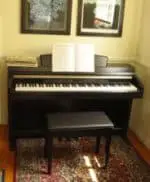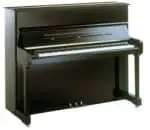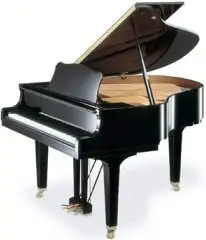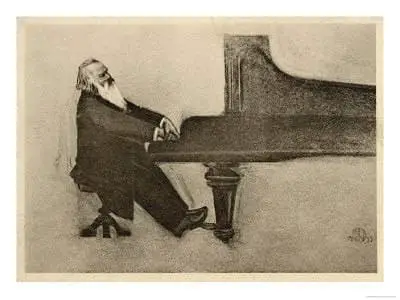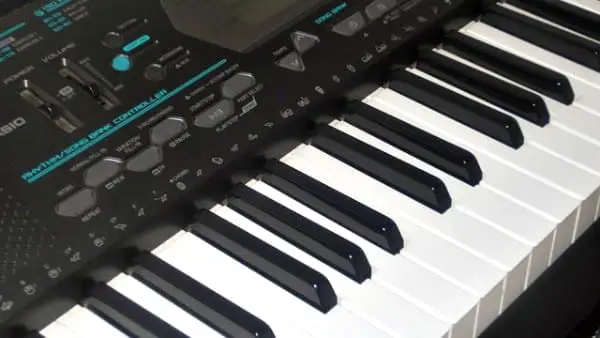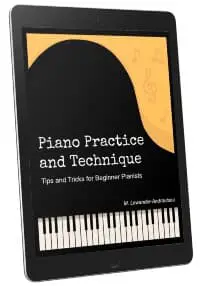- Home
- Piano Keyboards Guide
Piano Keyboards Guide
Choosing an Acoustic Piano Keyboard, Digital or Electronic?
This article may contain compensated links. Please read the disclosure for more info.
Before you can start piano lessons, you need a piano. Piano keyboards come in many styles, but it can be hard for a beginner to know what is the best instrument.
Here is a guide to help you find the best instrument for you, and what type of piano accessories you need for a great start.
What Are The Best Piano Keyboards For Beginners?
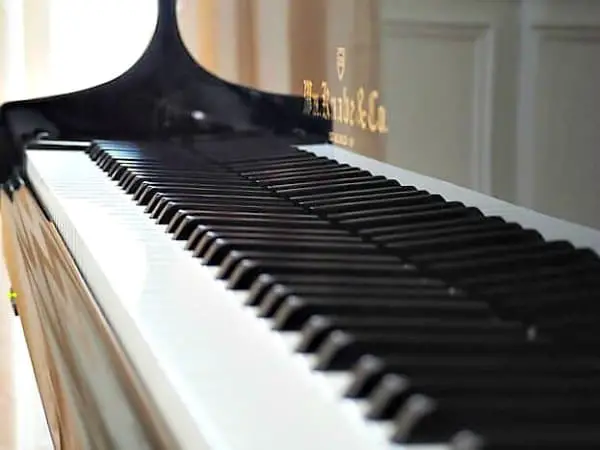 An Acoustic Grand Piano Perhaps?
An Acoustic Grand Piano Perhaps?The answer to this is the best quality of the type of instrument you prefer. If an electrical instrument is what you want, buy the best you can afford.
Make sure it has pedals, and a full sized, touch sensitive and weighted 88-key keyboard. If you would like an acoustic piano keyboard, check out second hand uprights. You can find really great second hand instruments!
It's a good idea to bring a pianist or technician along to help you try out the instrument if possible.
If you're an adult beginner learning how to play piano on your own, you might want to check out Piano For All. It's a resource that offers self-paced lessons so you can learn piano on your own schedule.
With its user-friendly approach, the resource provides a fun and engaging way to learn the basics of piano, such as reading sheet music, playing chords, and understanding rhythm.
selecting your piano
The biggest purchase for a new pianist is obviously a piano or a keyboard. But a trip to a music store can easily get confusing- there are simply too many choices...
So, let's narrow it down. Ask yourself what type of instrument you need:
- Would you need an acoustic or a digital piano?
- An electronic or digital keyboard?
- An acoustic upright or a grand piano ?
>>Click here to view great deals on piano keyboards.
Acoustic or Digital?
First of all, you need to decide whether you are interested in an acoustic or a digital piano. Begin by asking yourself these questions:
- Do I need a lighter instrument that is easily movable, or will I keep it only in one place? An acoustic piano is heavy. A digital is lighter.
- Do I live in an extremely humid or dry climate, where having an acoustic piano would mean a lot of extra tuning and maintenance?
- Do I want the quality and incomparable feel of a "real" acoustic piano, or do I prefer having a keyboard or a digital piano that I can connect to my computer?
The first time you buy a piano, you are buying an instrument that hopefully will stay with you for a long time, so you need to find one that really suits your needs. Remember that prices in a store are usually negotiable, so it pays to do your research before you buy ; )
I have written more tips here: How to Buy Piano- Your Piano Buying Guide.
types of piano keyboards
piano keyboards can be divided into four groups
1. electronic piano keyboards
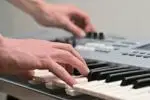
These instruments are portable, normally budget friendly and have lots of fun sounds and effects to play around with.
Electronic keyboards are generally not great for classical style pianists, but there are some good alternatives. Click here to read more.
2. digital pianos
Digital pianos, are serious competitors to acoustic upright or grand piano keyboards. The sound and touch is excellent, and no maintenance is required.
Many models are also somewhat portable. A digital piano is not the same as an acoustic in feel, neither in key-weight or "touch".
But still, a digital piano is a budget friendly instrument and a great alternative for keeping in a place with less than ideal temperature or humidity/dryness. Click here to read more.
3. acoustic upright pianos
An acoustic piano is an investment for the serious pianist. A small upright needs little space and comes in many brands and models.
An upright is too heavy to move around, and needs regular care, maintenance and tuning for a long life. There are many different prices and brands available. You could also consider buying second hand. Click here to read more.
4. acoustic grand piano
A grand piano is for the serious pianist who wants to get the best.
It's important to note that a grand needs a larger room though. It's not an instrument to be tucked away in a corner, but to be proudly displayed!
Many different prices and brands are available, and buying second hand may also be an excellent choice. Click here to read more.
piano accessories
Even though a good instrument is the most important, there are a few basic accessories that are important for best playing and practicing results.
piano bench

A great piano bench is absolutely essential for comfortable playing. The more comfort, the more you will want to practice!
The absolute best would be if you can get an adjustable bench, especially if it's padded. This you can position at exactly the right height for you.
As a good bench will help you to sit with the best posture when playing, it will also facilitate balance and coordination. Read more about the piano bench here.
lighting
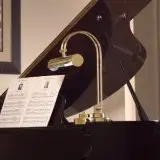
Good lighting made for piano keyboards is also very important when playing and practicing.
Make sure your lighting is adequate and does not cast any shadows on the keyboard.
It is also important that you can easily read the notes in front of you (without squinting or craning your neck)- it is amazing what great lighting can do to ease tension! I just purchased two piano lamps that I like very much. This one for my digital piano, and this for my grand piano. They are both dimmable which is nice!
metronome
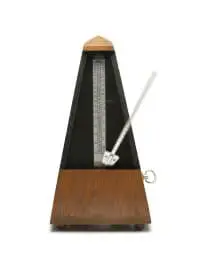
A handy and very useful little gadget that every serious piano player need is a quality metronome.
There are many different types of metronomes available, and in many price ranges.
Learn about my recommended metronomes and how to practice with a metronome for great results here: How to use a metronome.
